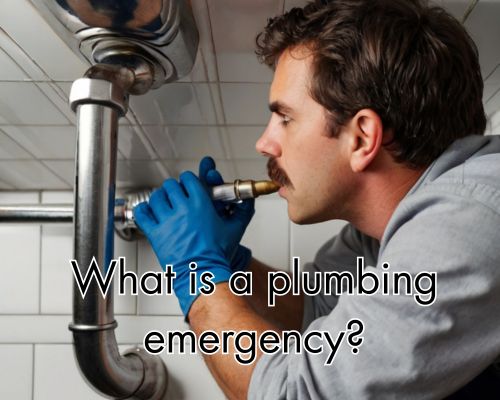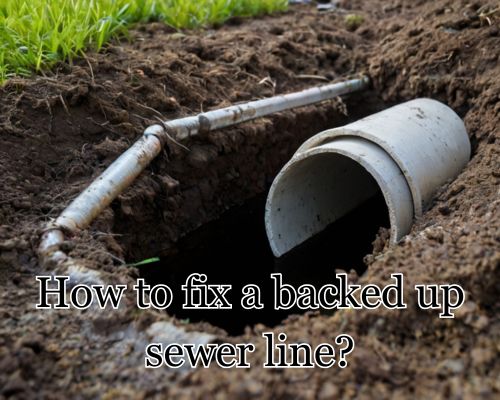What is a Plumbing Emergency? A Homeowner’s Essential Guide in Australia
If you’ve ever been startled by a gushing pipe in the middle of the night or a toilet that won’t stop overflowing, you’ve probably asked yourself: What is a plumbing emergency? Understanding the difference between a minor inconvenience and a full-blown emergency can save your home, your sanity, and a significant chunk of your wallet—especially in Australia, where local plumbing laws, water conservation concerns, and variable climate conditions play a key role.

With Dean Owens of Plumber Warragul, we’ll dive deep into what qualifies as a plumbing emergency, why prompt action is crucial, which scenarios demand immediate professional help, and how Australians can prepare for the unexpected. Buckle in—your pipes might depend on this knowledge.
💧Understanding Plumbing Emergencies
A plumbing emergency is any situation involving your water, drainage, or gas systems that poses an immediate risk to your property, health, or safety. These problems require rapid intervention—often from a licensed emergency plumber—to prevent extensive damage, mould growth, or safety hazards such as gas leaks or contaminated water.
Unlike a dripping tap or a slow-draining sink, emergencies are disruptive and potentially destructive. The key criteria include:
- Risk of water damage
- Loss of water supply
- Health hazards (e.g., sewage backups)
- Gas leaks
- Blocked or burst pipes
🚨 Common Plumbing Emergencies in Australian Homes
Plumbing systems in Australia—especially in states like New South Wales, Queensland, Victoria, and Western Australia—are subject to unique challenges due to climate extremes, bushfire zones, and water-saving legislation. The following are typical emergencies across both urban hubs like Sydney and Melbourne and regional areas such as Ballarat, Wagga Wagga, or Townsville.
1. Burst Pipes
A burst pipe can release litres of water per minute, quickly flooding your home. This often happens in older Australian homes with aging copper pipes or during sudden temperature changes.
2. Sewer Backups
The smell alone is a red flag, but sewer backups can also expose you to bacteria, viruses, and structural damage. These usually occur after heavy rains or when tree roots infiltrate clay pipes—a frequent issue in leafy suburbs like Toorak (VIC) or Mosman (NSW).
3. Gas Leaks
Natural gas is commonly used in Aussie homes for heating and cooking. If you smell rotten eggs or hear a hissing sound, leave your property and call a licensed gasfitter. Under Australian Standards AS/NZS 5601, only qualified professionals may handle gas plumbing emergencies.
4. No Hot Water
This is especially urgent for households with elderly residents, infants, or medical needs. While not always a safety risk, lack of hot water can indicate a failed water heater, electrical issue, or sediment buildup—each requiring immediate inspection.
5. Overflowing Toilets
An overflowing toilet—especially one that doesn’t respond to a plunger—could indicate a blockage in the main sewer line. In multi-level dwellings or shared properties, this can affect more than one household.
🔍 Signs You Need an Emergency Plumber
How do you know if a problem needs a 24-hour plumber in Australia versus a next-day fix? Here’s a checklist:
- Water is gushing uncontrollably.
- Drains are backing up across multiple fixtures.
- You smell gas or hear hissing.
- There’s no running water in the house.
- Toilet overflow isn’t stopping with basic DIY measures.
- Visible signs of water damage (ceiling stains, warped floors).
Emergency plumbers in Australia are required to hold licenses under state-based bodies like Victorian Building Authority (VBA) or NSW Fair Trading. This ensures they meet safety and compliance standards.
🌏 Local Factors That Influence Plumbing Emergencies in Australia
Australia’s diverse climate and infrastructure mean that plumbing systems face regional risks:
- In Queensland, cyclones and heavy rainfall can overwhelm stormwater drains.
- In South Australia, hard water causes mineral buildup in pipes and hot water systems.
- In Perth, sand-based soils make underground leaks harder to detect.
- In Tasmania, colder winters increase the chance of frozen or cracked pipes.
Local water providers like Sydney Water, Yarra Valley Water, and Unitywater often issue alerts or guidelines when plumbing emergencies spike due to weather events.
🛠️ DIY vs. Professional Response
While it’s tempting to grab a wrench and go full Bob the Builder, certain tasks must legally be performed by licensed tradespeople in Australia, see Dean Owens of Plumber Warragul. That includes:
- Working on gas systems
- Installing or repairing water heaters
- Sewer line work
For smaller issues (e.g., slow drains, minor leaks), you can apply stopgap measures like turning off the main water valve, using a plunger, or applying plumber’s tape until help arrives. However, tampering with complex systems may void warranties or breach building codes.
🧰 How to Prepare for a Plumbing Emergency
Here are proactive tips Aussie homeowners can follow:
- Know where your water shut-off valve is — usually near the water meter or outside the home.
- Keep a list of local emergency plumbers in your area (e.g., 24/7 services in Brisbane, Canberra, or Adelaide).
- Conduct annual plumbing inspections — this is particularly vital in older properties and homes in bushfire-prone areas with ember entry concerns.
- Install water leak detection devices, especially if you’re in a rental or investment property.
- Check your insurance for emergency plumbing coverage. Some policies exclude certain damage types unless immediate action was taken.
📈 SEO Breakdown
Let’s break down the SEO anatomy of this article:
- Focus Keyword: What is a plumbing emergency?
- LSI Keywords: emergency plumber, gas leaks, burst pipes, overflowing toilet, water damage, 24-hour plumber, sewer backup
- Salient Entities: Australia, Sydney, Melbourne, Queensland, gas fitter, water heater, VBA, NSW Fair Trading
- Local Mentions: Sydney, Melbourne, Toorak, Mosman, Ballarat, Townsville, Yarra Valley Water, Unitywater
By integrating geo-specific nuances, service-related terminology, and semantic variants, this content is primed to rank well for both informational queries and high-intent service searches in Australia.
✅ Final Thoughts: When in Doubt, Call It Out
So, what is a plumbing emergency in Australia? It’s any situation where your plumbing system breaks down in a way that risks your property, health, or safety—and it needs immediate professional attention.
Whether you’re living in the heart of Melbourne’s CBD, a coastal Queensland town, or a rural property near Launceston, plumbing emergencies demand swift, informed action. Knowing the signs, understanding the stakes, and preparing your home can make the difference between a quick fix and a costly catastrophe.
💧 Stay safe, stay dry, and always have your plumber’s number on speed dial. 💧
🙄 Don’t wait until your bathroom becomes a swimming pool—act before it’s a plumbing emergency! 🙄


